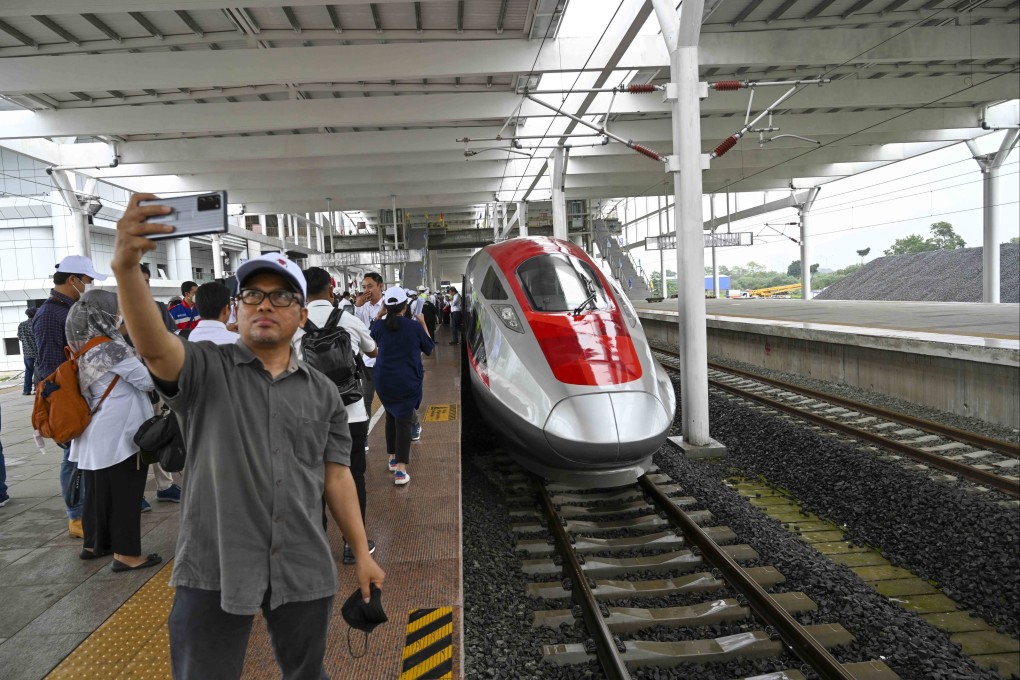Indonesia asks Chinese bank to cut loan interest rate as mega rail project exceeds budget
- A top minister says Indonesia can repay its debt with the interest rate at 3.4 per cent, but will push for 2 per cent to cope with a US$1.2 billion cost overrun
- It is ‘highly likely’ that Indonesia will have to use its state budget to cover the train’s operations each year, analyst notes

Luhut Pandjaitan, Indonesia’s coordinating minister of maritime and investment affairs, said on Monday that Jakarta intended to again persuade the China Development Bank (CDB) to lower the interest rate for a US$560 million loan to 2 per cent. The bank had agreed to reduce the initial rate of 4 per cent to 3.4 per cent during Luhut’s trip to Beijing last week.
“Yes, we want 2 per cent, but we can’t achieve everything. If you borrow from overseas, the interest now can reach 6 per cent. So if we get 3.4 per cent [loan interest], we’re doing OK, even though it’s not really OK,” Luhut said on Monday. “We still want to negotiate again.”
The US$560 million loan must be repaid within 30 years.
Andry Satrio Nugroho, head of centre of industry, trade, and investment at Jakarta-based Institute for Development of Economics and Finance, said the 3.4 per cent interest rate was an “acceptable” number for both parties.
“China certainly doesn’t want to [provide a loan] at a 2 per cent rate. The 3.4 per cent rate is a number that can be accepted by both parties,” he said.
“The question now is whether KCIC will be able to optimise operations, and how long will it take for KCIC to [pay off] its debts,” he said, referring to PT Kereta Cepat Indonesia-China, the joint venture between Indonesian and Chinese consortiums behind the project.